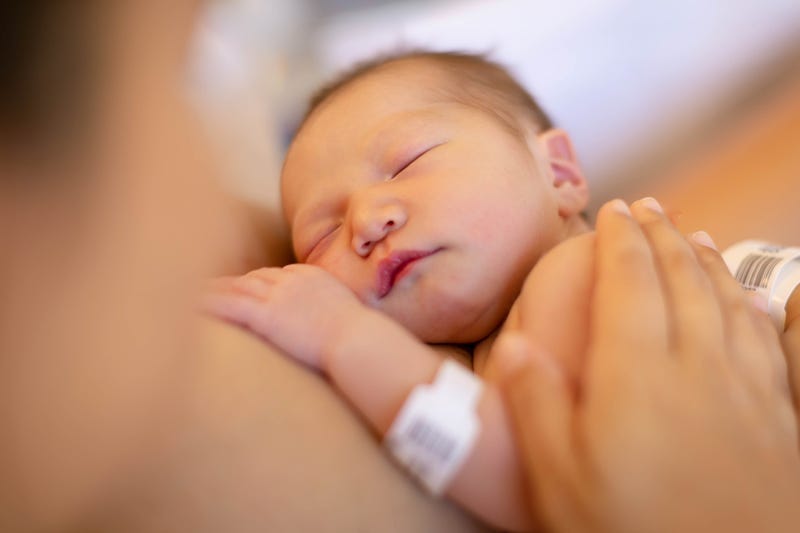
The first three years of life are extraordinarily critical to the development of the young mind. It’s when babies become toddlers and learn to move and communicate. But they learn other things, too, as they take in the environment around them.
Stability, normalcy, routine – all of these things are helpful to the steady development of a child. So what happens when the world around them is anything but normal.
As of March, the world has now entered Year 3 of the COVID-19 pandemic, and for the babies born just before or during this timeframe, pandemic life has been their normal. But what has that meant for their development?
Early studies are showing they’ve certainly been impacted, with the COVID kids scoring lower on measurements of both their gross motor and fine motor skills as well as ability to problem-solve and social development, on average.

That’s the consensus from a number of different studies of child development in the time of COVID: Columbia University, Rhode Island Hospital and the nonprofit LENA Foundation have all begun looking into whether there has been a developmental slowdown in children born in the last three years.
Some of that can be attributed, studies say, to isolation and lack of access to typical child care or health care. But there’s also the stress factor.
“Learning doesn't start on the first day of school, but the first day of life,” University of Chicago researcher Dana Suskind told USA Today, adding that emotional experiences are just as important as educational ones to the developing mind.
“If a child’s brain is continually exposed to stress, that brain is going to wire with the assumption that the environment is always going to be like that,” Suskind said.
And there has certainly been no lack of stress for parents to pass on to their children in the last three years, even if it has been an inadvertent transfer.
The good news: children can usually make up whatever development has lagged, especially if the lag is noticed early, experts say.
But taking note of slowed development can be challenging, particularly for new parents who may not know what to look for. And the outsized difficulties of the past three years not related to raising a child – sickness, grief, lost jobs or wages, isolation – haven’t made things easier.
Stanford University professor Phil Fisher calls it a “hardship chain reaction” because that stress is noticed by even the youngest children, whose brains are like sponges soaking up everything in their orbits.
“The ability to provide nurturing and supportive care – it gets increasingly challenging to the extent that people are preoccupied with obtaining basic needs,” Fisher told USA Today. “For any individual kid, if you want to know how they've been doing, it’s very tied to how parents are doing.”
LISTEN on the Audacy App
Sign up and follow Audacy
Facebook | Twitter | Instagram

